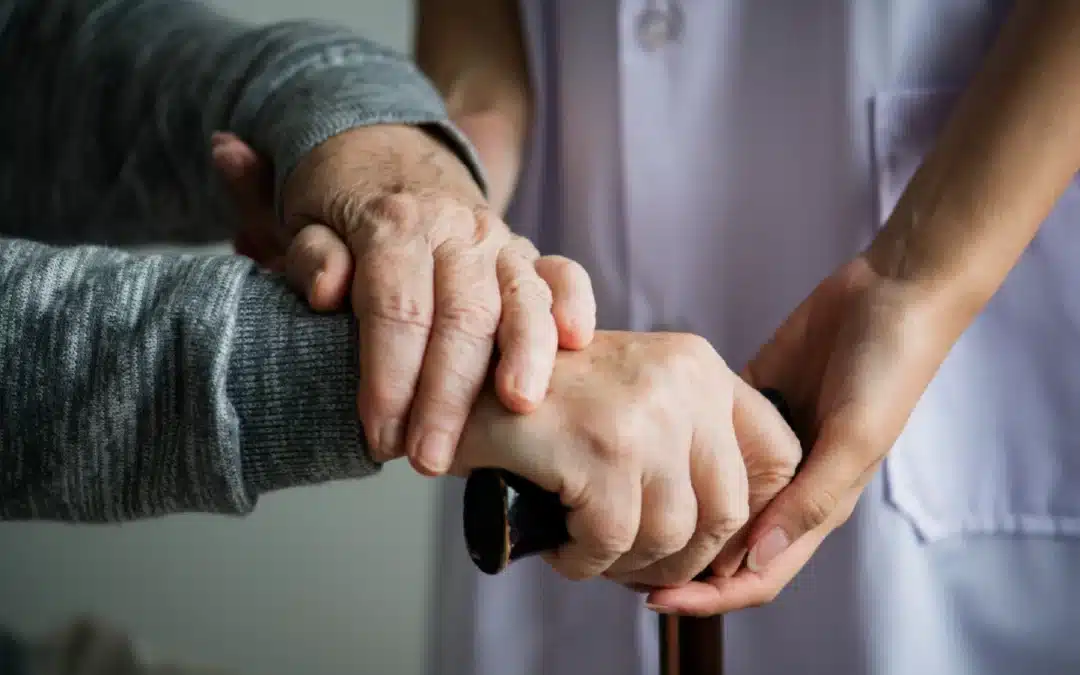Parkinson’s disease is one of the most common neurodegenerative disorders among the elderly. It is a progressive neurological disorder that affects movement and is characterized by tremors, stiffness, and impaired balance and coordination. According to recent estimates, approximately 1.2 million individuals aged 65 and above are living with Parkinson’s disease in India. As life expectancy increases and the elderly population grows, the prevalence of Parkinson’s disease is expected to rise further, posing significant challenges as elders progressively become more dependent.
How to Identify Parkinson’s Disease:
Parkinson’s disease is characterized by a progressive loss of neurons in the brain that produce dopamine, a chemical essential for coordinating movement and regulating mood. This loss leads to motor symptoms as mentioned below and non-motor symptoms such as depression, anxiety, cognitive impairment, and sleep disturbances are common among individuals with Parkinson’s disease. Identifying Parkinson’s disease in its early stages can be challenging, as symptoms may be subtle and develop gradually over time. However, common signs and symptoms to watch out for include:
- Tremors or shaking, especially in the hands, arms, legs, or face.
- Muscle stiffness and rigidity, make movement difficult.
- Bradykinesia or slowness of movement, resulting in a shuffling gait and difficulty initiating movement.
- Impaired balance and coordination, increasing the risk of falls.
- Changes in handwriting and speech, such as a softer voice or slurred speech.
Treatment Options for Parkinson’s Disease:
Several treatment options are available to manage Parkinson’s disease symptoms, including medications like levodopa, deep brain stimulation (DBS), physical therapy, speech therapy, and occupational therapy.
Why Caregiving Matters for Elders with Parkinson’s Disease?
Caregiving is essential for elders with Parkinson’s disease, as it plays a crucial role in managing the condition. A holistic approach to care is necessary, as Parkinson’s can be difficult to diagnose and treat. Caregivers provide vital assistance with daily tasks, medication adherence, and mobility challenges. Beyond physical support, they offer emotional companionship, reducing feelings of isolation and depression often experienced by those with the condition. Ultimately, caregivers significantly improve the quality of life and overall well-being of individuals living with Parkinson’s disease.
Why Choose KITES Senior Care for Parkinson’s management?
Through our holistic approach to care, we are pioneering the management of Parkinson’s disease. A person with Parkinson’s can have other co-morbidities like diabetes, hypertension, heart condition, etc. KITES 7-star assessment model, ensures that individuals with Parkinson’s disease receive personalized care tailored to their unique needs and preferences. Our multidisciplinary team offers a range of services, including medical consultation, specialized physiotherapy programs, emotional support, Ayurvedic healing modalities, and personalized nutrition plans. This integrated approach addresses various dimensions of well-being, leading to better outcomes and an enhanced quality of life for patients living with Parkinson’s disease.
Here’s why KITES stands out in Parkinson’s disease care:
-
Personalized Care Plans:
Tailored care plan is created to address specific symptoms and concerns, guaranteeing individualized support for each patient.
-
Comprehensive Physiotherapy Programs:
Specialized physiotherapy programs are tailored to address symptoms such as rigidity, tremors, and gait disturbances, ultimately enhancing mobility and overall function.
-
Ongoing Monitoring and Support:
Our team provides continuous monitoring of progress and adjusts treatment plans as needed to optimize outcomes and enhance quality of life.
-
Coordination with Healthcare Professionals:
We facilitate communication and coordination with treating physicians and specialists, ensuring seamless care integration across all aspects of treatment.
-
Emotional Support and Counselling:
In addition to physical care, we offer emotional support and counselling services to help patients and their families cope with the challenges of living with Parkinson’s disease.
-
Ayurvedic Healing Modalities:
Our care plan integrates Ayurvedic principles and therapies to complement conventional treatments, offering holistic support for managing Parkinson’s disease symptoms, which has proven to enhance the outcomes and quality of life.
Conclusion
With a successful record of delivering geriatric care to over 5,400 families and providing more than 90,000 nursing days, we are dedicated to ensuring top-quality care. Our facilities include over 160 assisted care beds and 340 specialized care beds, spanning across 3 cities. Whether in our Geriatric Care Centers or the comfort of one’s home, we prioritize delivering exceptional care to seniors in need.
Connect with us and talk to our expert for guidance or write to us at hello@kitesseniorcare.com today to start the next phase of your hip replacement recovery.

